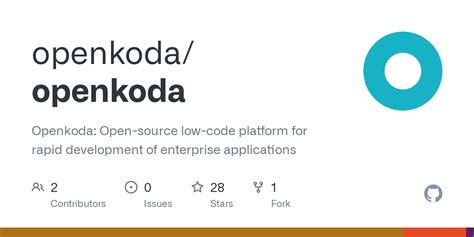In the sprawling world of enterprise applications, Salesforce has largely dominated the landscape. However, Openkoda is shaking things up by offering an *open-source*, customizable alternative that promises to deliver what many enterprises have long desired: versatility, control, and the ability to run without getting bogged down by licensing fees and proprietary limitations. With a living repository on [GitHub](https://github.com/openkoda/openkoda), Openkoda is harnessing the power of community-driven development and inviting a dialogue about the future of enterprise software.
One of the most significant topics discussed around Openkoda is its use of Java. As user mgl points out, Java remains a powerhouse in enterprise environments due to its ubiquity, performance, and robust ecosystem. This choice doesn’t come without its detractors, though. Some, like creaktive, note that the customization capabilities of Apex (Salesforce’s Java-like proprietary language) justify Java’s role for easier migration and integration. Another commenter, fire_lake, succinctly weighs in, suggesting that Java’s less resource-intensive nature compared to Python makes it a practical choice for the complex, resource-heavy applications that Openkoda aims to power.
Further expanding on the open-source nature of Openkoda, it’s essential to note the vibrant discussions around its potential to compete with closed ecosystems like Salesforce. While Salesforce has the benefit of decades-long partner ecosystems and mature market penetration, Openkoda’s open-source model offers the advantage of flexibility and independence. Enterprises that have grown weary of the high costs and technological constraints of Salesforce could find solace in a platform where they own the source code and can develop without restrictions. As commenter mgl succinctly puts it, Openkoda allows companies to ‘retain full source code ownership and the capability to get any Java/JS team to work on it and run anywhere you want.’
Another area of interest brought up by the community is the comparison between Openkoda and other platforms like Odoo, which is also open-source but written in Python. Odoo has proven successful, as mentioned by comment likeafox, but as user tomrod points out, Odoo’s business approach has made some uneasy due to the growing disparity between its community and enterprise versions. Openkoda, being released under the MIT license, brings a fresh perspective to this by promising no artificial barriers between the open-source and enterprise functionalities.
While the community is robust, built around concepts of open innovation, there are questions and critiques. For instance, the cadence of new releases attracts scrutiny. The discussion between user candiddevmike and mgl highlights that while the development may seem slow, it’s primarily internally driven to ensure stability for enterprise users. This cautious approach, however, could benefit from a more open and collaborative release process, as several commenters suggest. A more frequent public release schedule could help in bringing more developers onboard and facilitating faster improvements.
The choice of programming languages and the comparative performance characteristics are another hot topic. Python enthusiasts like OutOfHere note that while Python is resource-heavy in terms of CPU, Java typically demands more memory. Despite this, Java remains favored for its rich libraries, efficient runtime, and static typing, which enhances safe refactoring capabilities. The trade-offs between developer experience and operational efficiency make for lively debates, but the consensus seems to lean towards Java for its enterprise-readiness, countering perceptions of its verbosity and complexity.
In conclusion, Openkoda represents a dynamic shift in how enterprises can approach the development of their core business applications. By leveraging an open-source model and the power of Java, it positions itself as a viable alternative to Salesforce, addressing critical pain points such as customization limitations, high costs, and locked-in systems. However, the journey is fraught with challenges, and the community’s feedback is integral to its evolution. As this ecosystem grows, the meticulous balance between innovation and stability will be crucial in determining Openkoda’s success in the highly competitive enterprise software market.


Leave a Reply